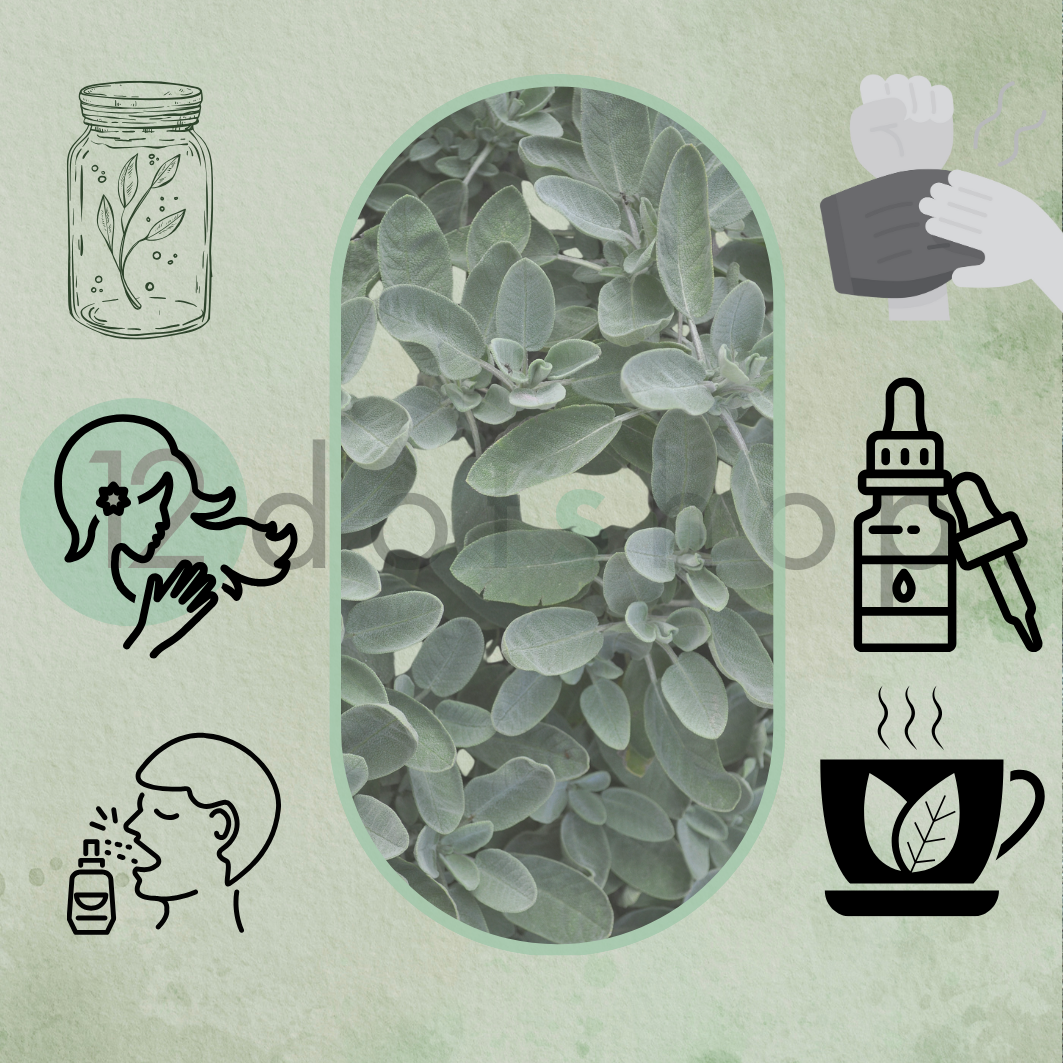
Sage (Salvia officinalis) is a powerful herb that offers many benefits for daily use:
To start, drinking sage tea can support digestion and improve liver function, making it a great option for overall health. It can also help with hormonal changes, such as reducing night sweats or easing the weaning process by decreasing milk production. Additionally, this infusion promotes better circulation, which can be helpful during times of fatigue or weakness.
Moving on, sage also shines as a natural remedy for hair and oral care. For your hair, rinsing with sage tea can reduce dandruff and even restore some of the natural color to graying hair. For oral health, a mild sage tea can be used as a gargle or mouthwash. It soothes sore throats, helps with gum disease, and heals mouth ulcers effectively. These simple uses make sage an easy addition to your beauty and wellness routine.
Finally, sage can work wonders as a topical or concentrated remedy. A compress soaked in sage tea can speed up the healing of slow-healing wounds, while a sage tincture provides relief from hormonal imbalances or excessive salivation in Parkinson’s disease. Moreover, sage has been used in traditional Chinese medicine to relieve menstrual cramps, improve blood flow, and support heart health. With its wide range of uses, sage is truly an everyday remedy for both health and beauty.
Here are some practical applications analytically:
- Infusion for Internal Use:
Prepare by steeping 20 grams of sage leaves in 500 ml of water. This infusion acts as a liver tonic and digestive stimulant, improving circulation and alleviating menopausal symptoms. It also helps reduce milk production during weaning and mitigates night sweats. - Hair Rinse:
Use the infusion as a rinse to combat dandruff and restore color to graying hair naturally. - Mouthwash or Gargle:
A mild sage infusion can be used to soothe throat irritation, alleviate tonsillitis, heal mouth ulcers, and combat gum disease. - Compress:
Apply sage-infused cloths to slow-healing wounds. Its antiseptic properties promote recovery. - Tincture:
A tincture made from sage is beneficial for menopausal symptoms, including excessive salivation in Parkinson’s disease. - Decoction for Pain Relief:
Used in traditional Chinese medicine for conditions like menstrual cramps caused by blood stasis, angina, and coronary artery disease.
These traditional and medicinal uses highlight sage’s versatility and therapeutic potential
